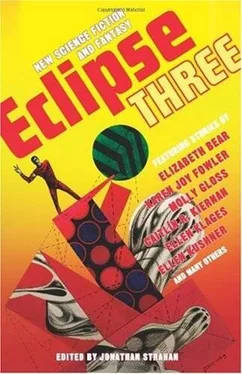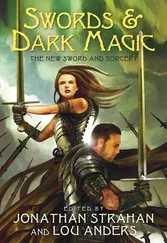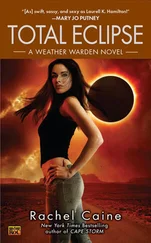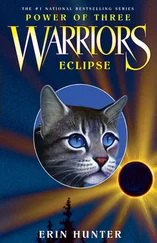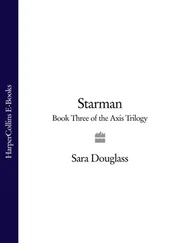Olive's look of disgust recalled too many similar, rankling moments of harsh condemnation, and Tug had to suppress an immediate tart rejoinder.
"Oh, Tug, you could have written at any time in the past twenty years. But you let those early rejections get to you, and you just caved in and gave up."
Unspeaking, Tug poked pensively and peevishly at his melting ice cream. Then he said, "Can you drop me off in Henrietta? I've got to find the Tom Pudding."
7. In Pursuit of the Tom Pudding
At its inception the Attawandaron Canal had stretched unbroken for nearly four hundred miles, from Beverwyck on the Hudson River, the state's capital, all the way to Bisonville on the shores of Lake Attawandaron, another of the Grands. Constructed in the mid-1800s during the two terms of President Daniel Webster, the Canal had been an engineering wonder, and came to occupy a massive place in American history books, having opened up the Midwest to commerce with the established East, and also generated an immense folklore, still fondly recalled. The Canal Monster, Michel Phinckx, Sam Patch and other archetypes. Bypassed now by other modes of transport, chopped by development into long and short segments, the old Canal had become a recreational resource and prominent talismanic presence in Carrollboro and environs.
Tug had chosen the Henrietta district as a likely starting point for his search for the Tom Pudding. Beginning at Carrollboro's city lines where the Canal entered town, he would follow its riverine length until he encountered the utopic loafer's haven limned by Pete.
Tug waved goodbye to Olive's dwindling rear-view mirror, shouldered his pack, and looked at the westering sun. Their trip to the Little Theatre to drop off Tug's last load of stuff had chewed up more time. Now he had barely a few hours before frosty autumnal dusk descended. No plans for how to spend the night. Better get moving.
Tug's earlier whimsy of inhabiting a vanished Currier & Ives era intermittently materialized as he began to hike the Canal. Stretches of the original towpath, paved or not, served as a bike and pedestrian trail, alongside the somnolent unworking waters channeled between meticulously joined stone walls, labor of a thousand anonymous Irish and Krakówvian workers. The mechanisms of the old locks hulked like rusted automatons. The whole scene radiated a melancholy desuetude most pleasing to Tug. Something older even than him, yet still useful in its decrepit fashion.
Of course, at other points the Canal fought with modernity-and lost. It vanished under grafitti'd bridges or potholed pavement, was pinched between ominous warehouses, paralleled by gritty train tracks: a Blakean straitened undine.
Tug was brought up short at one point as the Canal slipped liquidly beneath a razor-wire-topped fence surrounding an extensive auto junkyard. Furious big dogs hurled themselves at the chainlink, bowing it outward and causing Tug to stumble backwards. He worked his way around the junkyard by gritty alleys and continued on.
By ten p.m. exhaustion had set in. The neighborhood around him held no familiar landmarks, a part of Carrollboro unvisited by Tug before, despite his long tenure in the city. He found a Tim Horton's open all night, bought a coffee and donut as requisite for occupying a booth unmolested by the help. But the desultory kids behind the counter cared little about his tenancy anyhow. He drowsed on and off, dreaming of a Narcisse Godbout big as a mountain, up whose damp woolen flank Tug had to scrabble.
In the morning, he performed some rudimentary ablutions in the donut shop rest room, his mouth tasting like post-digested but pre-processed civet-cat coffee beans. Then he went on hunting the elusive barge full of slackers.
He made it all the way out past Greece Canal Park to Spencerport, before deciding that it was unlikely for the Tom Pudding to be berthed further away. Then he turned around and began wearily to retrace his steps, following the fragments of the Attawandaron Canal as if he were Hansel lacking a Gretel, seeking a way home.
Luckily that day featured pleasant weather. Tug had a pocket full of cash, his first unemployment money, so he was able to eat well. He even took a shower at Carrollboro's downtown branch of the Medicine Lodge, changed his underwear and dozed in the kiva chapel with some winos, despite the shaman's chants and the rattle of his gourds.
Tug extended his search beyond Henrietta. No luck. He spent the night in another Tim Horton's, emerging smelling like a stale cruller.
Eliminating the unlikely distal regions, the third day saw him repeat the whole central portion of his fruitless quest, traversing every accessible inch of the Canal without seeing so much as the Tom Pudding's oil slick.
When dusk arrived, Tug found himself at the edge of the sprawling park adjacent to the University of Carrollboro in the city's center, one hundred acres of path-laced greenery, wild as Nature intended in spots.
Slumped against a foliage-rich oak tree atop a dry carpet of last year's leaves (trees stayed seasonally green longer these days), Tug polished off a can of Coke. Dispirited and enervated, he mused on this latest failure.
Why hadn't he gotten Pete to nail down the location of the Tom Pudding? If the place was unknown, he should have discarded the option, despite its romantic allure. But having chosen to search, why couldn't he accomplish this simple task? It was as if the world always turned a cold shoulder to him. Why couldn't he ingratiate himself with anyone? Was he too prickly, too proud? Would he die a bitter, lonely, unrequited fellow?
Tug's thoughts turned to a wordless pall along with the descent of darkness. He stewed for several hours.
Then lilting ocarina music infiltrated his blue funk.
Tug had heard ocarina music intermittently for the past three days: from street musicians, lunchtime amateurs, kids in playgrounds, commercial loudspeakers. Fipple flute music provided the background buzz of Ocarina City, and he mostly paid little attention to it.
But he had never heard an ocarina sound like this. The music conjured up vivid pictures of foreign locales, an almost sensory buzz.
From out the bushes of the park emerged a dim figure, source of the strangely gorgeous sounds. Tug strained his eyes-
He saw Pete's Nubian Princess.
The black woman was bundled up against the cold in a crazyquilt assortment of shawls and scarves. Tug suspected the patterned garments would be gaudy and colorful by day. Lithe, tall, thin, she moved like a swaying giraffe. Her indistinctly perceived facial features seemed more Arabic or Semitic than Negroid. Her hair was a dandelion explosion.
She stopped a few yards away from Tug and continued to play, a haunting melody unfamiliar to the man.
Tug got to his feet. What were the odds he'd encounter such an exotic creature, given that the whole of North America hosted perhaps only ten thousand Africans at any given moment, and those mostly diplomats and businessmen? Could she be a foreign student attending Carrollboro's University? Unlikely, given the prestige of schools in Songhai, Kanen-Bornu and the Oyo Empire. Nor was it likely she'd be a shorebird, given that Africa 's displaced coastal citizens had all been taken care of at home.
Tug took a step toward the outré apparition. The woman ceased playing, smiled (teeth very white against dark skin), turned, then resumed playing and began to walk into the undergrowth.
Tug could do nothing but follow. Had not an ounce of will left otherwise.
Deeper into the park she led him. Tug could smell water. But not the semi-stagnant Canal water. Fresh, running water. He realized that they must be approaching the Cunhestiyuh River as it cut through the park and city.
Sure enough, they were soon at its banks, and could not cross. The woman led the way leftward along the shore until they reached a line of thick growth perpendicular to the river. Employing a non-obvious gap amidst the trees and bushes, she stepped through, Tug just steps behind.
Читать дальше
